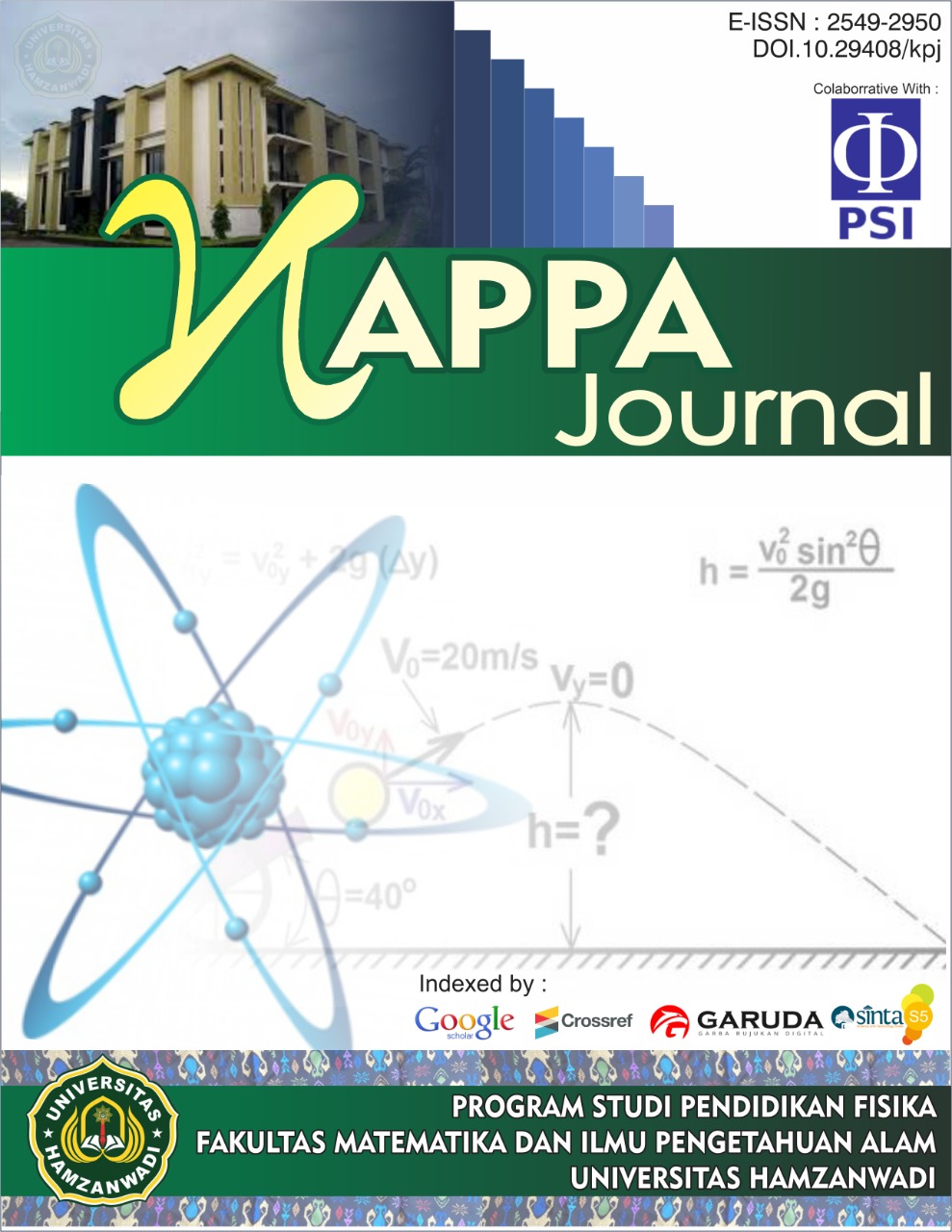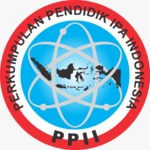Effectiveness of Guided Inquiry-Based Worksheets in Improving Science Process Skills on Vibrations and Waves Material
DOI:
https://doi.org/10.29408/kpj.v8i3.28525Keywords:
guided inquiry, worksheet, science process skill, vibration and wavesAbstract
Science education is a key factor in developing students' science process skills and understanding of scientific concepts. Mastery of science process skills is one of the important ways to gain knowledge. By implementing Student Worksheets based on guided inquiry, science process skills and understanding of scientific concepts can be improved. This study examines the effect of guided inquiry-based worksheets on science process skills. This study used a quasi-experimental design with a one-group pretest-posttest model to examine the effectiveness of guided inquiry-based worksheets in improving students' science process skills on vibration and wave material. The research participants consisted of students enrolled in vibration and wave courses in the third semester of the Physics Education Study Program, Universitas PGRI Pontianak, who were selected using saturated sampling techniques. The instruments used in this study were science process skills tests in the form of pretests and posttests and science process skills observation sheets during learning which included observing, classifying, measuring, interpreting data, making hypotheses, designing experiments, conducting experiments, communicating, results, concluding, identifying variables, and using tools and materials. The data obtained were analyzed using paired t-test and N-Gain analysis. Based on the data obtained, both from pretest, posttest, and observation, it can be concluded that the use of guided inquiry-based worksheets is effective in improving students' science process skills in vibration and wave material. This increase is clearly seen in the pretest and posttest scores, as well as in the observation of skills that show positive developments in all indicators of science process skills.
References
Aditomo, A., & Klieme, E. (2020). Forms of inquiry-based science instruction and their relations with learning outcomes: Evidence from high and low-performing education systems. International Journal of Science Education, 42(4), 504–525. https://doi.org/10.1080/09500693.2020.1716093
Aiman, U., Hasyda, S., & Uslan. (2020). The influence of process oriented guided inquiry learning (POGIL) model assisted by realia media to improve scientific literacy and critical thinking skill of primary school students. European Journal of Educational Research, 9(4), 1635–1647. https://eric.ed.gov/?id=EJ1272441
Archer-Kuhn, B., Lee, Y., Finnessey, S., & Liu, J. (2020). Inquiry-based learning as a facilitator to student engagement in undergraduate and graduate social work programs. Teaching and Learning Inquiry, 8(1), Article 1. https://doi.org/10.20343/teachlearninqu.8.1.13
Banda, H. J., & Nzabahimana, J. (2023). The Impact of Physics Education Technology (PhET) Interactive Simulation-Based Learning on Motivation and Academic Achievement Among Malawian Physics Students. Journal of Science Education and Technology, 32(1), 127–141. https://doi.org/10.1007/s10956-022-10010-3
Bhattacharya, S., Lombardi, D., Amani, S., Aleem, M., Prakhya, G., Adhikari, S., Aliyu, A., Alexander, N., Wang, Y., Cui, L., Jalbi, S., Pakrashi, V., Li, W., Mendoza, J., & Vimalan, N. (2021). Physical modelling of offshore wind turbine foundations for TRL (Technology Readiness Level) studies. Journal of Marine Science and Engineering, 9(6), Article 6. https://doi.org/10.3390/jmse9060589
Charlesworth, R., & Lind, K. (2010). Math and science for young children. Wadsworth/Cengage Learning.
Diani, R., Anggoro, B. S., & Suryani, E. R. (2023). Enhancing problem-solving and collaborative skills through RICOSRE learning model: A socioscientific approach in physics education. Journal of Advanced Sciences and Mathematics Education, 3(2), Article 2. https://doi.org/10.58524/jasme.v3i2.252
Hadi, A. S., & Widodo, W. (2022). Increasing science process skills using student worksheet guided inquiry-based learning on a simple plane of materials. Jurnal Pijar Mipa, 17(5), 588–596. https://doi.org/10.29303/jpm.v17i5.3689
Kori, K. (2021). Inquiry-Based Learning in Higher Education. In C. Vaz de Carvalho & M. Bauters (Eds.), Technology Supported Active Learning: Student-Centered Approaches (pp. 59–74). Springer. https://doi.org/10.1007/978-981-16-2082-9_4
Leif, F., Steven, G., & Carol, T. (2023). Improving Student Motivation and Learning Outcomes Through Inquiry Learning. World Psychology, 2, 11–25. https://doi.org/10.55849/wp.v2i1.389
Mahyuna, M., Putri, D. R., Hasja, Y., Nuhari, I., & Azzarkasyi, M. (2024). Improving science process skills using guided inquiry-based student worksheet. Proceedings of International Conference on Education, 2(1), 488–493. https://doi.org/10.32672/pice.v2i1.1399
Mamun, M. A. A., Lawrie, G., & Wright, T. (2020). Instructional design of scaffolded online learning modules for self-directed and inquiry-based learning environments. Computers & Education, 144, 103695. https://doi.org/10.1016/j.compedu.2019.103695
Matsna, F. U., Rokhimawan, M. A., & Rahmawan, S. (2023). Analisis keterampilan proses sains siswa melalui pembelajaran berbasis praktikum pada materi titrasi asam-basa kelas XI SMA/MA. Dalto : Jurnal Pendidikan Kimia dan Ilmu Kimia, 6(1), Article 1. https://doi.org/10.31602/dl.v6i1.9187
Mutlu, A. (2020). Evaluation of students’ scientific process skills through reflective worksheets in the inquiry-based learning environments. Reflective Practice, 21(2), 271–286. https://doi.org/10.1080/14623943.2020.1736999
Numa, N. A. S., & Martini, M. (2022). Application of guided inquiry student worksheet on additive materials to improve the science process skills of junior high school students. Jurnal Pijar Mipa, 17(4), 424–429. https://doi.org/10.29303/jpm.v17i4.3535
Pajchel, K., & Ramton, A. M. T. S. (2021). Hvordan kan et utforskende undervisnings- opplegg i naturfag støtte læring og motivasjon hos elever med stort læringspotensial? Gifted students’ learning and motivation through an inquiry-based science unit. Nordic Studies in Science Education, 17(2), Article 2. https://doi.org/10.5617/nordina.7130
Rini, E. F. S., & Aldila, F. T. (2023). Practicum activity: Analysis of science process skills and students’ critical thinking skills. Integrated Science Education Journal, 4(2), Article 2. https://doi.org/10.37251/isej.v4i2.322
Salsabila, Y. R., & Muqowim, M. (2024). Korelasi antara teori belajar konstruktivisme lev vygotsky dengan model pembelajaran problem based learning (pbl). LEARNING : Jurnal Inovasi Penelitian Pendidikan Dan Pembelajaran, 4(3), Article 3. https://doi.org/10.51878/learning.v4i3.3185
Secules, S., McCall, C., Mejia, J. A., Beebe, C., Masters, A. S., Sánchez-Peña, M. L., & Svyantek, M. (2021). Positionality practices and dimensions of impact on equity research: A collaborative inquiry and call to the community. Journal of Engineering Education, 110(1), 19–43. https://doi.org/10.1002/jee.20377
Solé-Llussà, A., Aguilar, D., & Ibáñez, M. (2022). Video-worked examples to support the development of elementary students’ science process skills: A case study in an inquiry activity on electrical circuits. Research in Science & Technological Education, 40(2), 251–271. https://doi.org/10.1080/02635143.2020.1786361
Suman, S., & Xavier, S. (2020). Relationship between science process skills and achievement in science of secondary school students. International Journal Of Creative Research Thoughts (IJCRT), 8, 2320–2882. https://doi.org/10.1729/Journal.24892
Toh, G., & Park, J. (2020). Review of Vibration-Based Structural Health Monitoring Using Deep Learning. Applied Sciences, 10, 1680. https://doi.org/10.3390/app10051680
Downloads
Published
Issue
Section
License
Copyright (c) 2024 Kappa Journal

This work is licensed under a Creative Commons Attribution-ShareAlike 4.0 International License.
Semua tulisan pada jurnal ini menjadi tanggungjawab penuh penulis. Jurnal Kappa memberikan akses terbuka terhadap siapapun agar informasi dan temuan pada artikel tersebut bermanfaat bagi semua orang. Jurnal Kappa dapat diakses dan diunduh secara gratis, tanpa dipungut biaya, sesuai dengan lisensi creative commons yang digunakan








